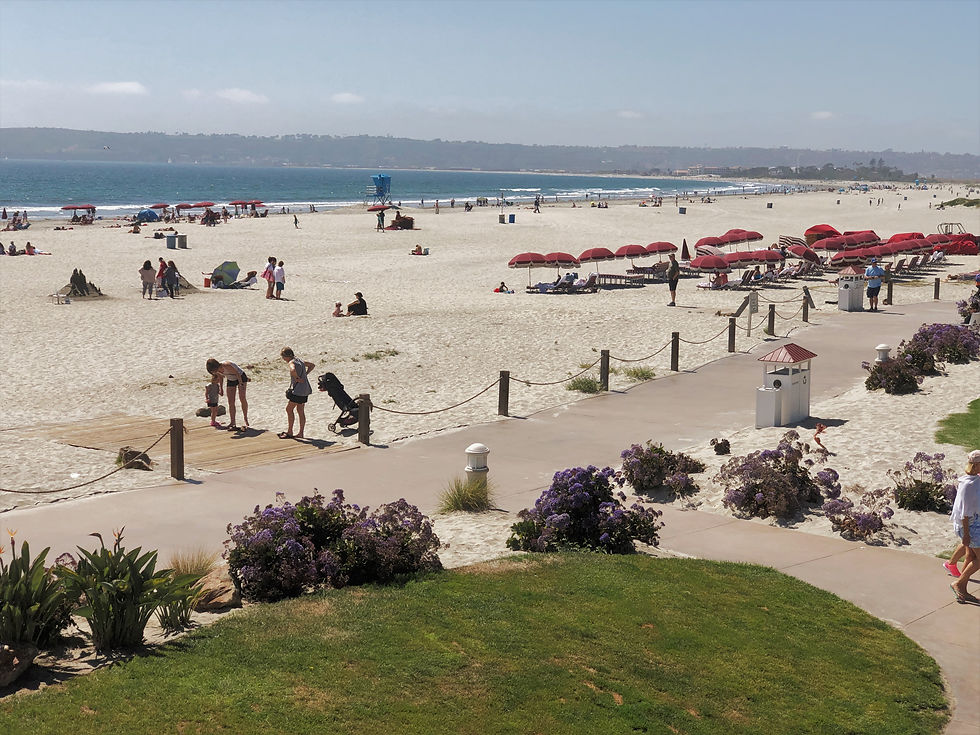This is Why Everyone Visits San Diego
- Steve
- Apr 24, 2019
- 3 min read
Updated: 1 day ago
During Weston and Mackenzie's trip to CA, we added a side trip to San Diego. Although it was only a quick 2 day trip, we managed to fit in a few of the main sights.
Balboa Park
Balboa Park is central to the story of San Diego. In 1868, civic leaders took the audacious step of setting aside 1,400 acres of a scrub-filled mesa, an area that now overlooks what is downtown San Diego. While San Diego was home to just 2,300 residents back then, its leaders had the vision and desire to create an iconic park that would serve its citizens and its visitors for years to come. In fact, San Diego was the second city to dedicate a large urban park behind only New York City’s Central Park.


In 1910, with preparations already underway to hold an expo to coincide with the opening of the Panama Canal, the park was named for the Spanish explorer Vasco Núñez de Balboa, the first European to cross Central America and see the Pacific Ocean. Several of the buildings, as well as much of the present-day look and feel of the park, can be attributed to the 1915 Panama-California Exposition. Built in the Spanish Colonial-revival style, the park’s highly ornamental style was the first of its kind in the United States.

Without exaggerating it would be easy to spend several days exploring the park. After walking around the park the entire morning, Weston and Mackenzie enjoyed a few minutes at the Bea Evenson fountain.

Balboa Park boasts 17 museums and cultural institutions with an incredible diversity of collections. Our first stop was the Timken Museum of Art, which is home to the Putnam Foundation’s globally-important collection of European old masters, 19th century American art and Russian icons. I included pictures of a few masterpieces on display at the Timken.
'Portrait Of Marguerite De Seve Wife Of Barthelemy Jean Claude Pupil'. This portrait of the wife of a French provincial judge standing beside a harpsichord, wearing an extravagant silver and gold breast plate and flowing red velvet dress, was painted by Nicolas de Largilliere (1656-1746) in 1729.

The Russian icon 'The Jerusalem Mother of God' (17th century) is one of many Russian icon hanging in the gallery.

Rembrandt's 'Saint Bartholomew', one of the twelve apostles. In his right hand Bartholomew holds a butcher's knife, his traditional attribute. It is a symbol of his martyrdom: he is said to have been flayed alive.

Built for the 1915 Panama-California Exposition, the Botanical Building and Gardens in Balboa Park’s National Historic Landmark District is known for its iconic lath structure. It is home to more than 2,100 plant varieties.

There were so many different colors and varieties of orchids.



At the Museum of Photographic Arts, there was a display titled SELF/REFLECTION. You stand in front of a mirror that generates a reflection made up of 974 individual portraits.

At the Museum of Man, there was an excellent display that featured several large Mayan monuments or stelae. These are casts of the original monuments that were found in Quirigua, a site in Guatemala. The casts were made for the 1915 Panama-California Exposition and have been on display ever since.


Local artisans can display their works in the cultural center shops. There were a few unique pieces of artwork displayed.
Of course what trip to San Diego would be complete without a visit to the San Diego Zoo.
We drove to the Hotel Del Coronado and enjoyed lunch at the beach restaurant and then walked along the beach. When The Del opened in 1888, it was the single largest resort hotel in the world. The original grounds had many amenities, including an Olympic-sized salt water pool, tennis courts, and a yacht club with architecture resembling the hotel's grand tower. A Japanese tea garden, an ostrich farm, billiards, bowling alleys, hunting expeditions, and deep sea fishing were some of the many features offered to its guests.


The 1.5 mile Coronado Beach periodically makes the list of top 10 beaches in America.































Comments